Here’s what we’re looking forward to at the ASE annual conference in Birmingham
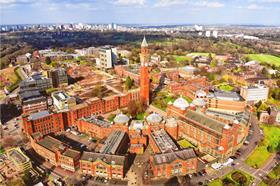
The ASE annual conference is a highlight of our year. However, there are so many great events in the conference programme it can be difficult to know where to start.
We’ve been through the schedule and here’s some of what we’re looking forward to.
Thursday
Science teacher SOS: one year on

Thursday 10.30am (programme link)
Andy Chandler-Grevatt explains how this ASE guide for teachers on how to create a work-life balance has made a positive difference to science teachers and has been adopted by other subjects.
Find out more about Science Teacher SOS, and ideas from Andy on maintaining a good work–life balance: three quick wins for teacher well-being, default time plans and self-care tips for teachers.
Best evidence science teaching

Thursday 11am (programme link)
A new collection of free, research evidence-informed resources for effective teaching of difficult ideas, embedded formative assessment and adaptive lesson planning in 11–14 (key stage 3) science. We took a closer look at what they have to offer.
What makes a great science department?

Thursday 4pm (programme link)
Join us for an interactive panel discussion, with ideas and practical steps to help you develop a vibrant, effective science department. Our experienced panel will share some of their own insightful learnings and recommendations, before a wider discussion where we want you to contribute your own ideas and experiences.
Friday
Learning from chemistry education practice

Friday 12pm (programme link)
Five teacher–researchers who have participated in the Chemical Education Research Group’s scheme will present their work, which has investigated aspects of chemistry teaching and learning.
Discover what they did, why they did it and why they think you should apply.
Brenda Keogh lecture: science capital

Friday 1:30pm (programme link)
Science capital is a concept that can help us understand patterns in science participation – why some people engage with science and others do not. In particular, it helps shed light on why particular social groups remain underrepresented in post-16 science, and why many young people do not see science careers as being ‘for me’, nor see themselves as a ‘science person’.
Here’s how to engage more students with science using a science capital teaching approach.
How you and your students can contribute to scientific research
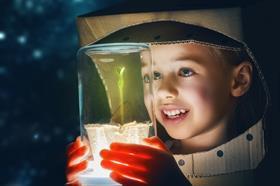
Friday 2pm (programme link)
Find out how you can do research with your students that improves attainment and aspiration. The Institute for Research in Schools allows school students to participate in scientific research. The students get to truly experience the ups and downs of life as a scientist: the answers aren’t in the back of the book and the apparatus aren’t laid out.
How the secrets of science-writing can improve science teaching

Friday 3pm (programme link)
This session will reveal how media professionals create compelling science stories. Learn how to engage people with science, spark their curiosity and keep them coming back for more. Discover how editors choose and package stories, get tips from a journalist and author on how to hone your own writing, and share in the experience of a teacher who has developed science writing as part of her career.
Do they really get it? Mimicry and misconceptions
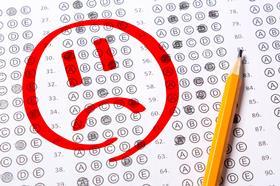
Friday 3pm (programme link)
Is your class simply telling you what they think is the right answer, or have they really grasped the concept? What’s the point of assessment if it just tells you what you thought you knew anyway? Niki Kaiser will talk about tricky concepts: how to support students and how to know when they have truly mastered them. Take a look at Niki’s article on assessing students’ understanding.
Assessing the impact of CPAC
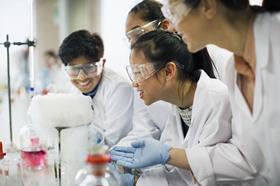
Friday 3pm (programme link)
The first cohort of students sat the reformed A-level chemistry in summer 2017. In the new qualification, the assessment arrangements for practical work changed significantly. Catherine Smith will describe a study carried out to assess the impact of the reforms on students’ experience of, and confidence in, practical chemistry.
Talking science debate

Friday 4pm (programme link)
Have your say about science provision: are schools offering students equal learning opportunities?
Join the Royal Society of Chemistry, Royal Society of Biology, Royal Society, Institute of Physics and ASE for this year’s Talking science debate to discover the factors influencing schools’ decisions about science provision.
Using career contexts to teach science

Friday 4pm (programme link)
There is a strong emphasis in the government’s career strategy on the use of the Gatsby Benchmarks. The key benchmark for subject teachers is ‘All teachers should link curriculum learning with careers’. STEM subject teachers should highlight the relevance of STEM subjects for a wide range of future career paths. This workshop explores straightforward ways to include career ideas in the everyday classroom, to enrich and support the teaching of curriculum content. Try this idea for starters.
Saturday
Inspiring science demonstrations
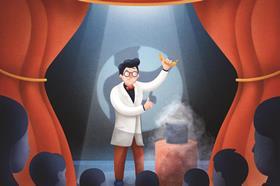
Saturday 10am (programme link)
In our January 2017 issue, Neil explained how taking lessons from magicians can make your demonstrations come alive. We’re looking forward to find out what he has up his sleeve this time.
No more coasting: strategies and tools to help every student make progress
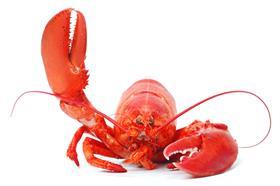
Saturday 11am (programme link)
Pinch points are difficult but important curriculum concepts. Diagnostic pinch point tasks can be used to diagnose common issues and misconceptions for students working at different levels, and move them forward. Find out how they can be used to make effective interventions.
Integrated instructions in practical work
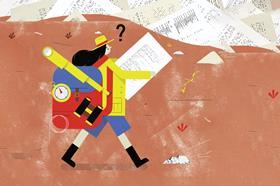
Saturday 12pm (programme link)
Integrated instructions are a new way to present practical instructions. They simplify instructions by integrating simple diagrams with minimal text, and clear pictograms and step ordering to help improve student independence and confidence during practical work. David Paterson will present research findings on their use in the classroom and discuss currently available integrated-instructions.










1 Reader's comment